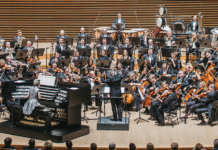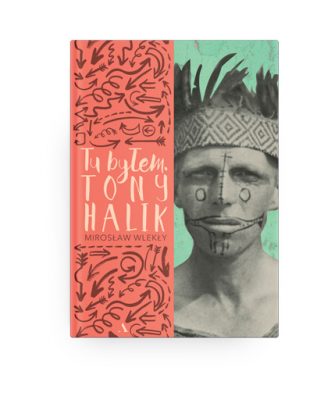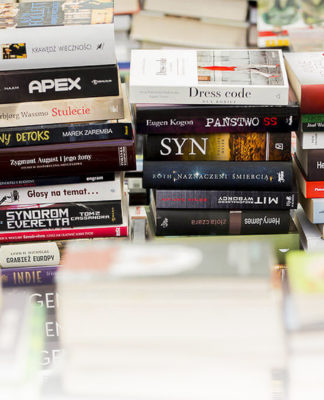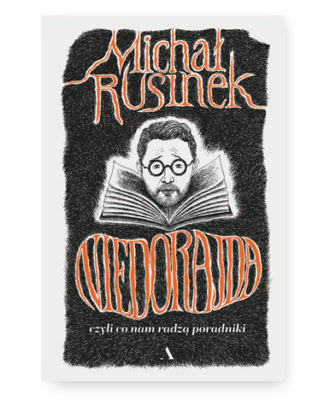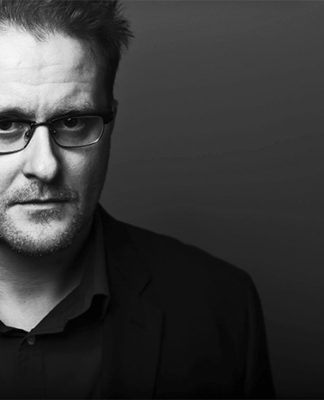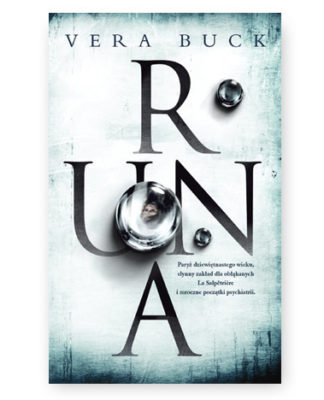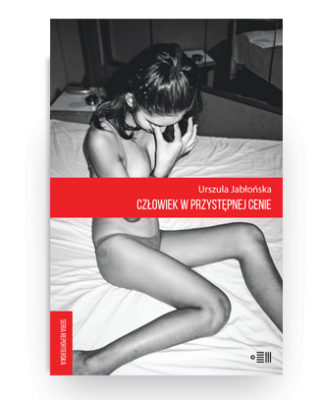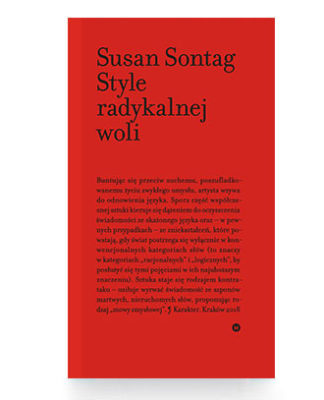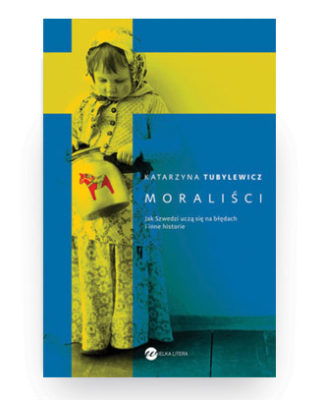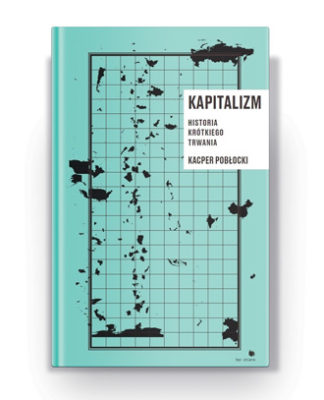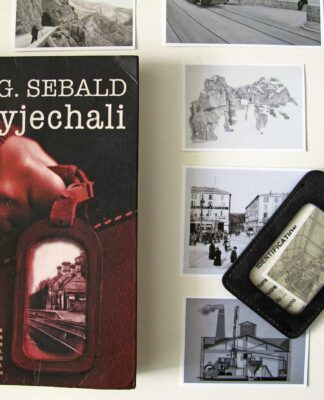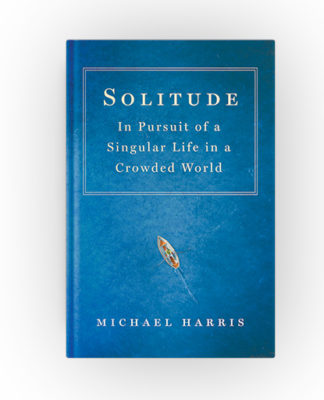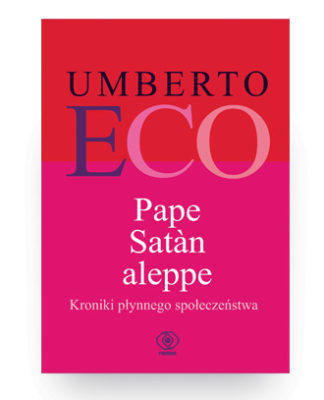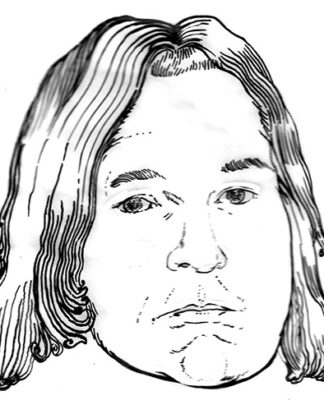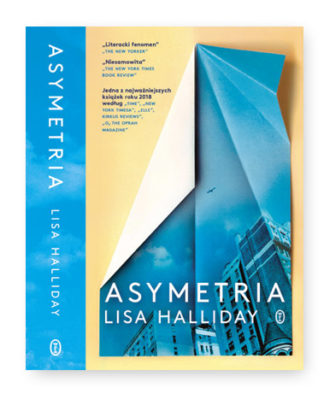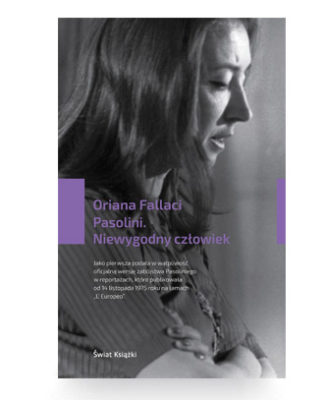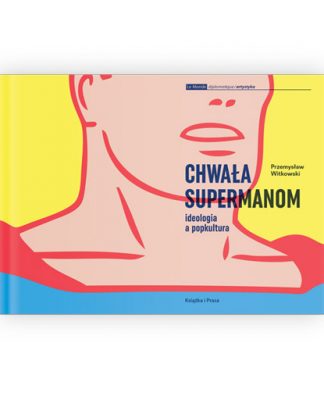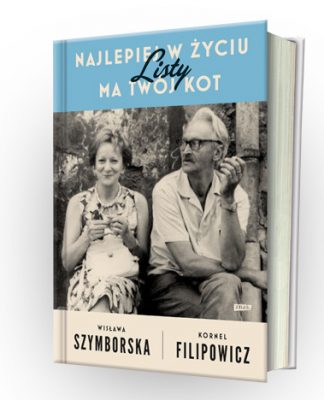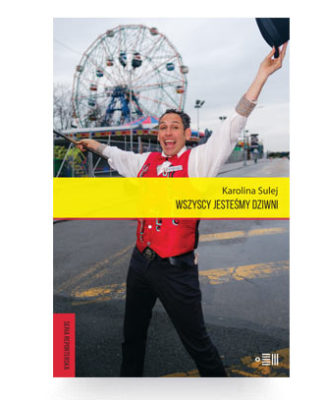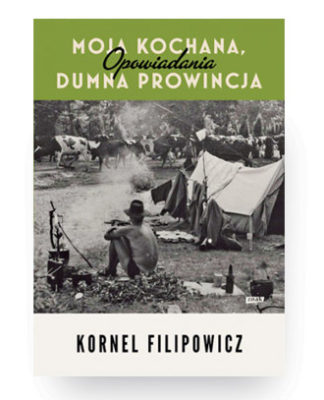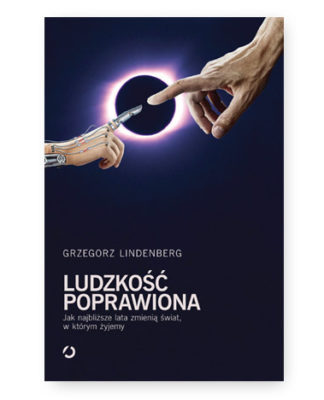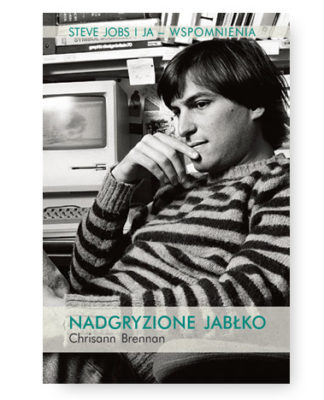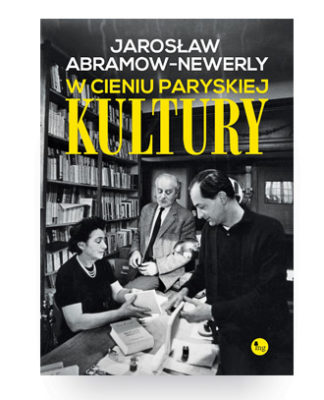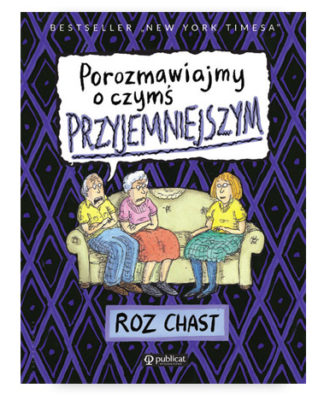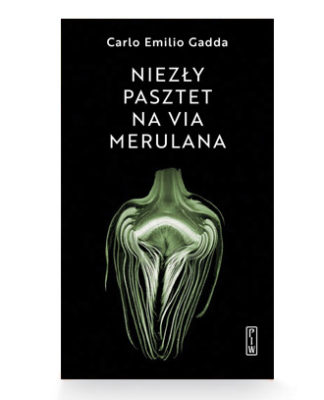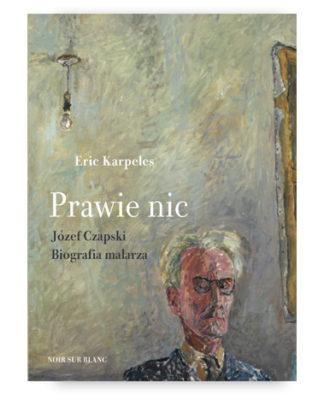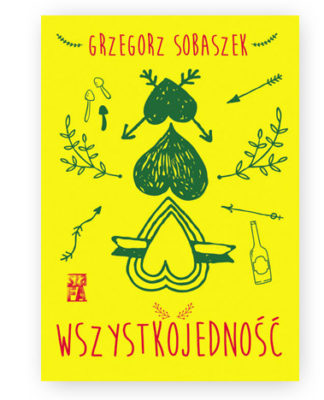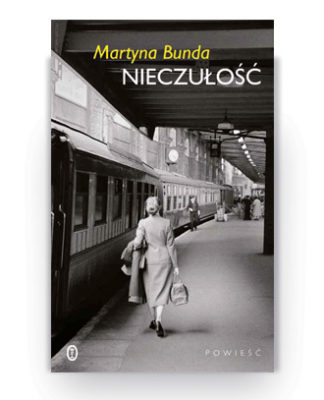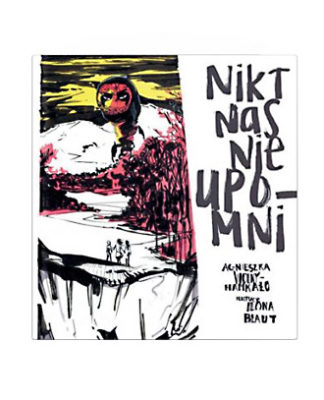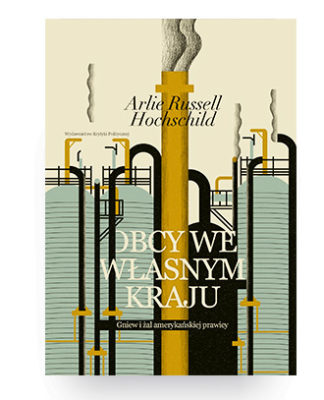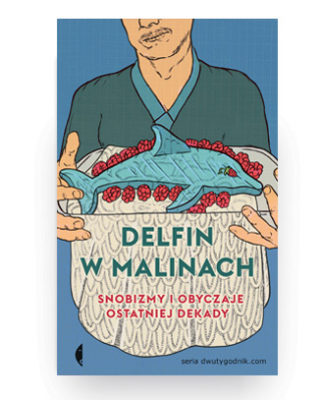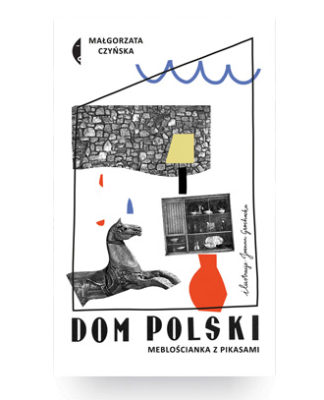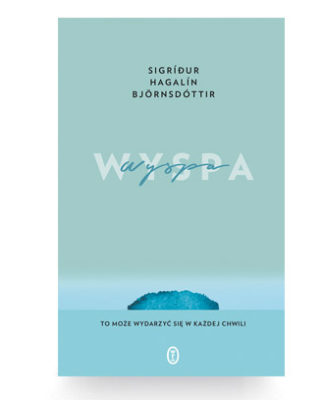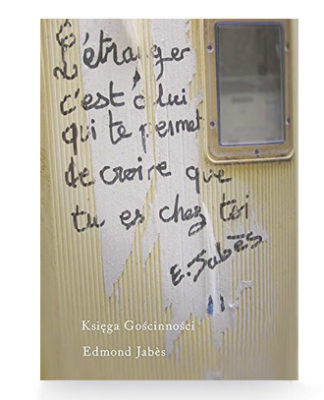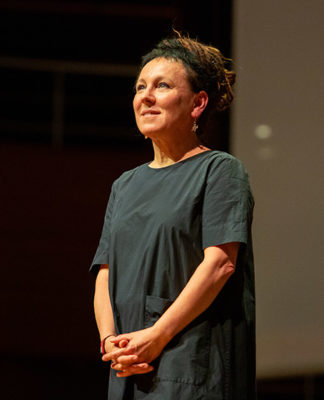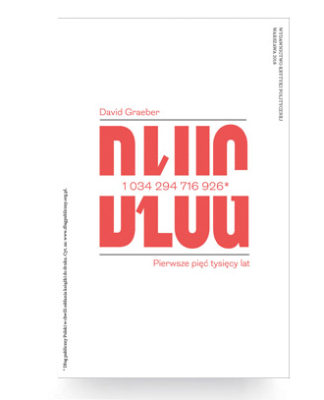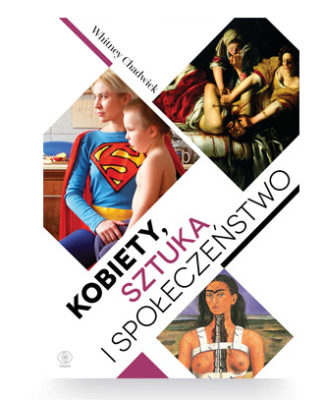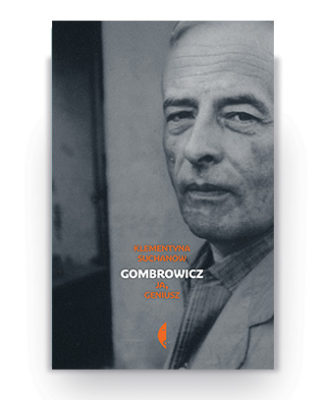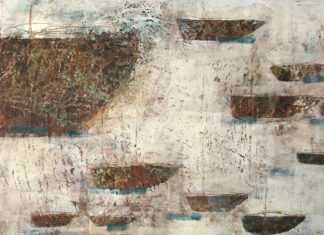Fot. Victor Santiago
Jessica Nuccio made her operatic debut at La Fenice as Violetta in La Traviata. For the last month, she has been performing the role beneath a 3.5-tonne chandelier on Sydney Harbour. As the season ends, we meet in the historic tea room of the Queen Victoria Building, beneath an equally stunning Baccarat crystal chandelier. Over tea, her story unfolds.
Text by Jansson J. Antmann
Sicilian born Jessica Nuccio always knew she wanted to sing.
“When I was very young, I would stand on the balcony and sing to the clouds,” she recalls. “I remember a special sensation came over me, every time I did that.”
Like many children in Palermo, Jessica came from very humble origins and any thought of studying music was quickly dismissed out of hand. Nevertheless, her father liked listening to Neapolitan singer Mario Merola and Jessica enjoyed singing his songs. One day, at the age of eight, she sang ‘Mamma’ for her father at a community event. She was noticed by a wealthy lady, who encouraged her mother to let her pursue musical studies and even agreed to sponsor her. At the age of ten, with her new benefactor’s support, Jessica was accepted into the conservatorium to study violin.
“I was too young to study singing at that stage, but my teacher recognised that it was my passion. He told me that if I studied violin for six years, I could then take up singing. During this time, I received various scholarships that allowed me to go forward.”
At the age of sixteen, Jessica achieved her goal. To pay for her vocal studies she worked shifts as a waitress, in bars, and as a hostess at weddings and corporate events.
In 2011 Nuccio made her professional debut at La Fenice in the role of Violetta, the same theatre where it had received its world premiere in 1853.
“When the Artistic Director asked me if I wanted to sing in La Traviata, I thought he meant the role of Annina, but he said, ‘No, no. Violetta!’ I wanted to refuse, but my singing teacher, bass-baritone Simone Alaimo, told me I was crazy and promised them I’d do it.”
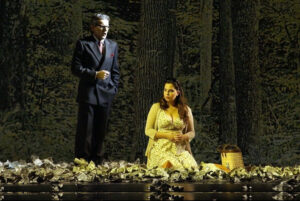
Nuccio hadn’t travelled much before then. She’d seen photos and videos, but nothing prepared her for her arrival in Venice.
“After I entered the theatre, I cried for two days. It was so beautiful, but I was too frightened to sing there,” she recalls. “It was a few years after it had reopened following the fire, but I can still remember the scent of fresh wood.”
Overcoming her fears, Nuccio made her debut to public and critical acclaim. Since then she has performed the role of Violetta over 150 times, 60 of those at the famed Venetian opera house.
Nuccio’s career has taken her all over the world, and she says that as long as she’s on stage, she feels at home. That said, she misses her family.
“My son travelled with me for five years. Now that he’s at school, it’s only possible during school holidays. I love being a mother and I don’t like being alone. It is a lonely job,” Nuccio admits. “I haven’t seen my son since the 13th of February, when I left for Australia. I hear colleagues say they enjoy their own company, but I don’t. I can’t stop thinking about my husband, my son, and our home-cooked meals.”
During such long periods of separation, does she ever wish she could just stay at home and not go to the theatre?
“No,” Nuccio is emphatic. “I find my strength and my dignity in my work.”
This was never more apparent than during Nuccio’s triumphant return to Palermo, where some teachers had never allowed her to forget her humble beginnings.
“In their eyes, once you’re poor, you’re always poor,” Nuccio says defiantly. “It was a beautiful feeling to go back and sing Violetta at the Teatro Massimo. I had finally earnt my right of reply to those who’d told me I’d never make it.”
Make it she did, and Jessica Nuccio is now one of the most sought-after singers around the world. Prior to the outbreak of the global pandemic, in addition to engagements across Europe, she toured Japan and was scheduled to perform in Atlanta. Having previously performed with Opera Australia as Gilda in the 2018 season of Rigoletto, she was also about to make her Australian debut as Violetta. Then COVID-19 struck and the 2020 Handa Opera on Sydney Harbour was cancelled.
“I took the first plane out, so I could return to Italy. It ended up taking three days, because I had to stay in Abu Dhabi for one day, and then fly on to Berlin. When I got there, nobody knew if it would be possible to reach Italy, so I bought tickets on three or four different flights and fortunately the second one departed.”
Reunited with her family, Nuccio stayed at home for six months. In October, Belgium reopened long enough for her to travel to Liege and perform Mimi in La Bohème. She also reprised the role in Taiwan, before returning to Australia in February this year. After completing quarantine, during which she engaged her passion for cross stitch, Nuccio finally resumed rehearsals for the long-awaited revival of La Traviata.
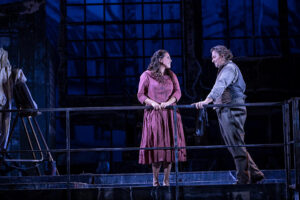
Alternating in the role of Violetta, Jessica Nuccio has spent the last month performing alongside Paul O’Neill as Alfredo and José Carbó as Germont. It would be hard to imagine a finer combination of voices. It is a credit to Artistic Director Lyndon Terracini that he could assemble such accomplished alternating casts for this year’s Handa Opera on Sydney Harbour, given the current international travel restrictions. Nuccio is full of praise for her colleagues, highlighting the camaraderie they share and the mutual respect they have.
“We are a team, and teamwork is so important in achieving the high standard we all strive for.”
She doesn’t shy away from admitting the need to prompt one another either – something she desperately relied on during her first performance.
“We wear an earpiece to hear the accompaniment and during my first performance it fell out. I had to take my cues from the chorus, because I couldn’t hear myself or the orchestra. I was singing, ‘Alfredo, Alfredo!’ out of real desperation,” Nuccio laughs.
Given the huge popularity of outdoor productions, like the Handa Opera on Sydney Harbour and the Bregenz Festival, more and more singers are being forced to accept less than ideal conditions for performing. Singing in full voice with a microphone is just one of the challenges.
“It does feel strange, because I mustn’t push my voice too much. On top of that, the return of the voice is totally different. When you sing in a theatre, what you hear coming back at you is a soaring sound … it’s sky high. Here on the harbour, it’s dead. There’s nothing there.”
“Having sung in a theatre environment so many times, this is a completely different experience. But it’s beautiful! I can see the moon … and the bats! The first time I saw one of those flying foxes, I thought it was an eagle flying over the stage,” Nuccio laughs.
She admits that the weather has also taken its toll.
“When it gets cold, it’s terrible for the voice. I warm up and get very hot when I sing. However, breathing in the cold air on those freezing nights resulted in condensation and I performed with a runny nose. I was hoarse the next morning. Thankfully, I had a day to recover and I was fine by the next performance.”
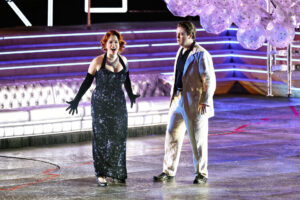
When it comes to looking after her voice, Nuccio has the best care she could wish for in the comfort of her own home.
“My husband is an Ears, Nose and Throat surgeon and we first met when I was his patient. I was having vocal problems during preparations for Donizetti’s L’elixir d’amore in Modena. I contacted him, and he insisted I visit him immediately. After examining me, he told me I couldn’t sing for 15 days. At first, I didn’t want to follow his advice, but I did as I was told and my voice fully recovered. From then on, I continued to visit him for regular check-ups. He treated me for five years before we realised we’d fallen in love,” Nuccio giggles.
“We also love singing together. He trained as a pianist and a tenor and it was only after graduating that he took up medicine.”
With such close, expert care helping inform her vocal choices, are there roles Nuccio will never sing?
“Yes, Tosca. It’s impossible. And the Queen of the Night in The Magic Flute.”
Nuccio begins humming “Der Hölle Rache kocht in meinem Herzen.”
“I’m a lyric coloratura. I couldn’t hit those notes if someone trod on my foot,” she laughs.
And what of the challenging conditions she faced while performing outdoors at Handa Opera on Sydney Harbour? Would Nuccio consider doing it again?
“Of course! It’s such a magical experience singing on this huge, floating stage against the backdrop of the Sydney Opera House and the Harbour Bridge. If I lack energy, I can draw upon that incredible mass of water below to give me strength.”
Another vital ingredient to the enjoyment Nuccio derived from singing La Traviata in Sydney, was working with Brian Castles-Onion.
“Brian is an excellent conductor. He has a lot of empathy for singers and will come to us during the interval to see how we’re finding things. I feel as comfortable asking for something to be changed as I do in saying, ‘Yes, Maestro.’ Nothing is ever a problem for him, and he always underlines that he’s there for us.”
It is no mean feat to deliver a sound as true to Verdi’s original intent, in an amplified, outdoor arena and Nuccio’s praise for Castles-Onion extends to his interpretation of the score. A case in point is Germont’s aria “Di Provenza il mar, il suol”.
“I believe it is really a lullaby Verdi wrote for his children, who both died in infancy. It’s very paternal and if you look at the partitur, you’ll see it is meant to be played pianissimo. There shouldn’t be any hint of anger, and that’s how it’s performed here.”
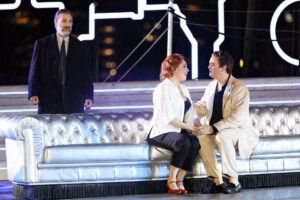
This attention to detail is characteristic of Nuccio’s scholarly approach to her roles, especially Violetta.
“I study and revisit it all the time. Before I came to Sydney I visited Mariella Devia – my goddess – to sing it through with her. I have muscle memory, so I go to Devia to overcome that and learn new things.”
An avid note-taker, Nuccio makes the most of every opportunity to learn from the great conductors she has performed under, such as Zubin Mehta and Nello Santi, in order to broaden her understanding of the score.
“There are times when I’ll have heard a conductor talking about something related to La Traviata and I’ll quickly note it down, so that I can read up on it later,” Nuccio says. “I remember a funny thing happened when I was singing Violetta at the Teatro di San Carlo in Naples. Maestro Santi was conducting, and he arrived with the biggest partitur I’d ever seen. I think it must have dated back to the 1800s. He asked me to sing and then, surprised, he stopped me and asked what I was doing. I told him I wanted to sing pianissimo to which he responded, ‘Are you here to teach me?’ Of course, I replied, ‘No, no, not at all.’ He then proceeded to slowly pull out a magnifying glass from his pocket and inspected the score closely. Sure enough, there was his own handwritten note: pianissimo.”
“What Maestro Santi didn’t know was that when he’d conducted La Traviata at La Fenice, I was also there singing La Bohème. I had asked the Artistic Director if I could sit in on rehearsals for La Traviata to take notes, and that’s how I’d learnt how Maestro Santi liked it to be sung. Of course, he had no idea I’d been there and therefore he was perplexed by the fact that I’d done exactly what he wanted, without him needing to tell me,” she chuckles.
Nuccio finds inspiration everywhere and leaves no stone unturned in deepening her understanding of the role and what Verdi wanted to achieve.
“I feel a great weight of responsibility towards the music, the maestro and the orchestra. Therefore, I try to compensate for any musical imperfection by acquiring as much knowledge about the role as I can,” she explains.
“I’m always reading books about La Traviata. I have a new one about Verdi, which suggests that it’s autobiographical to a certain degree. Verdi’s father-in-law from his first marriage had paid for Verdi’s studies and held him in high regard. However, he didn’t want his daughter’s memory to be ruined by Verdi’s relationship with his second wife, La Streppone, so he discouraged Verdi from marrying her. The story of La Traviata resonated with Verdi. In a letter written while he was composing the opera, he mentions that La Streppone was ill. It is believed that this illness was brought on by the fact that the story was too close to home.”
Does Nuccio believe she will ever feel she has conquered the role?
“Vocally perhaps, but I will never stop learning about it,” she says emphatically. “One day in years to come, I may be teaching a young singer the role of Violetta and I have no doubt that, in spite of everything I’ve read and all the times I’ve sung it, she will present me with the key to a completely new way of approaching the part.”
Nuccio believes nurturing future generations in the appreciation of opera is vital to the artform’s future. She is reassured by the youth program at the Teatro Massimo in Palermo, encouraging young people to engage with the arts and visit the theatre she calls home. The program includes the Massimo kids and youth orchestras, a youth chorus and the theatre’s ‘rainbow’ choir, which is made up of children from immigrant families. Nuccio’s passion for the program is understandable, given her own history growing up.
“You have to prepare children for the opera,” she says, “and we should be creating more operas for them. I’ve tried to instil an appreciation of music in my own son. He loves dancing to music when he travels with me, and he can sense the feelings it conveys, even if he can’t understand the words.”
As a proud mother, Nuccio is keen to bestow on her son the opportunities she had to work so hard for.
“I want my son to be what he wants to be, and to pursue his passions. I’ve only ever told him to focus on two important things: study and travel. Studying allows you to travel, and travel broadens your mind.”
A sentiment not unlike Violetta’s own in “Sempre Libera”, where she sings of her thoughts leading to ever new delights.
“a diletti sempre nuovi
dee volare il mio pensier”
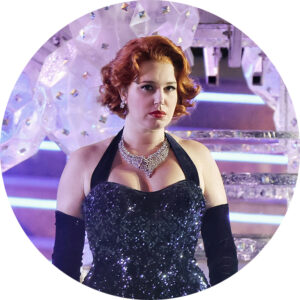
Fot. Prudence Upton







